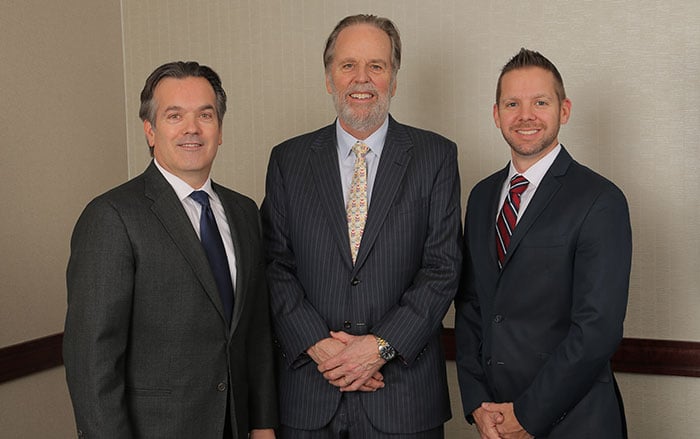Skilled Legal Representation For Your Indiana Motorcycle Accident
All too frequently, the failure of motorists to see a motorcycle results in catastrophic injuries. The driver of the other vehicle either does not see the motorcycle before the collision or does not see it soon enough to avoid the collision.
Because motorcycles do not offer the physical protection that cars do, motorcycle riders are much more susceptible to catastrophic injuries, such as traumatic brain injuries (TBI), broken limbs, road rash, spinal cord injuries and even death. And each year, thousands of bikers are seriously injured or killed in motorcycle accidents, but they and their families do not receive the personal injury compensation to which they are entitled.
Insurance companies often initially offer collision victims small settlements. This can leave motorcycle crash victims without the resources they need to pay for medical bills, lost income and other expenses. In addition, insurance companies routinely lowball offers for compensation for pain and suffering damages caused by the crash.
The Importance Of Getting A Lawyer On Your Side
The help of a personal injury attorney who has assisted others injured in motorcycle accidents recover is a good way to ensure your rights are protected and you do in fact recover the maximum amount of compensation you are entitled to under the law.
Located in Indianapolis, Indiana, at Doehrman Buba Ring, our accident lawyers represent motorcycle crash victims in Indiana and nationwide. We have an established reputation for taking on complex cases to recover the much-needed compensation to pay for medical expenses and other financial and emotional hardships caused by the collision.
We have decades of collective experience, and we are litigators – first and foremost. We prepare every case as if it will go to trial. We work closely with motorcycle accident investigators and other experts to help ensure that justice is served and our clients get the maximum amount they are entitled to.
We have obtained million-dollar verdicts and settlements on behalf of past clients. Let us help you.
FAQ About Motorcycle Crash Claims
The following section is dedicated to answering common questions that many people have after suffering a motorcycle accident in Indiana.
How Do Motorcycle Accident Claims Differ From Car Accident Claims?
The main differences between the two claims deal with causes and injuries, and that’s essentially because motorcycle accidents can be caused by several factors that don’t normally apply to car accidents, and the injuries in motorcycle accidents tend to be much more severe. Motorcyclists also tend to face unfair biases from judges, insurance companies and juries. Assumptions of fault can often threaten a motorcycle accident claim without the help of an experienced motorcycle accident lawyer who helps chip away at these preconceived notions.
Should I See What The Insurance Company Will Offer Me Before I Contact A Lawyer?
NO! If you speak to an insurance adjuster without consulting an attorney, you can put your motorcycle accident claim or potential personal injury lawsuit in jeopardy. The insurance adjustor will want to take your recorded statement and you should give such a statement without first consulting with an attorney. An experienced motorcycle accident lawyer will look out for your interests, unlike the insurance company, and fight on your behalf for fair compensation.
How Do Insurance Companies Determine Fault In Motorcycle Accidents?
Many factors come into play when it comes to how insurance companies determine fault in motorcycle accidents. Unfortunately for motorcyclists, these factors sometimes don’t have much to do with whether or not they were actually the ones responsible for causing the accident.
When an accident is reported to an insurance company, an agent will begin investigating and reviewing the available evidence, which includes police reports, physical evidence and any other statements that were made at the scene of the accident by witnesses and those involved. Insurance agents tend to use seedy tactics to allow them to build a case against motorcyclists to justify denying their claim or reducing their settlements.
The Indiana Comparative Fault Act requires responsibility for an accident to be divided. So long as an accident victim is less than 50% at fault for a particular accident, they can be eligible to seek compensation for their injuries. An experienced attorney will know how to minimize your percentage of fault and maximize your recovery.
What Damages Could I Seek In A Motorcycle Accident Case?
A motorcycle accident victim can seek special and general damages.
Special damages are also known as economic damages and can include the following:
- Past and future medical expenses
- Motorcycle replacement and repair expenses
- Lost wages or earnings if injuries prevent the victim from working
- Loss of any property in the collision.
General damages are related to nonmonetary losses and can include:
- Past and future pain and suffering
- Mental anguish and emotional distress
- Disfigurement or scarring
- Physical or mental impairment
- Inability to function as a whole person
- Permanency of an injury
Also, if you have lost a loved one in a motorcycle accident that was caused by another person’s proven negligence then you can claim damages under wrongful death statutes for things like:
- Loss of companionship or love
- Loss of the financial support from the decedent
- Loss of personal services or household services
- Funeral and burial expenses
Contact Our Team Today To Schedule A Free Consultation
If you or someone close to you has been injured in a motorcycle collision, it is in your best interest to understand your legal rights.
Schedule a free case evaluation with one of our experienced partners today. Call our office in Indianapolis at 317-669-9445 or send an email. Free consultations are always provided.


